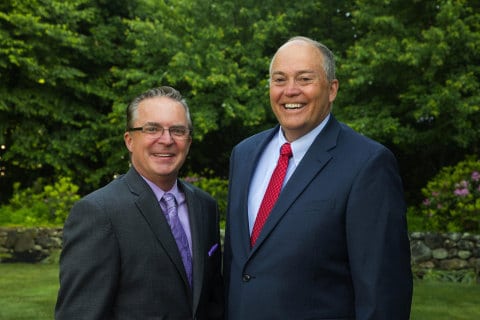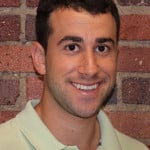
Taking a chance on a new CEO with an unconventional pedigree will give UniBank a chance to improve its community ties across MetroWest and Central Massachusetts, members of its board of directors hope.
Most CEOs at community banks have decades of experience in the industry. They typically have climbed the ranks at one institution or served in C-suite roles at other similar banks before getting the call to lead.
But Whitinsville-based UniBank’s new CEO Michael Welch is of a different breed.
The bank recently tapped Welch to head the bank and not only does he not have a single year of traditional banking experience on his resume, he spent the entirety of his career so far in education, including 15 years as the headmaster of St. John’s High School in Shrewsbury.
The decision to hire Welch, however, did not boil down to his banking experience, but instead was made for his deep roots in the community, said Tim Wickstrom, chairman of the board of directors at UniBank.
“In this day and age, it’s about relationships; it truly, truly is, especially for community banks,” he said. “No one has a bigger Rolodex of people than Michael Welch, given his prior life as headmaster.”
UniBank Pairs Newcomer with Old Hand
In addition to hiring Wickstrom, the bank also made longtime employee Christopher Foley president.
The move to bring on Welch is a complete 180 from its former CEO Sam Pepper, a 30-year banking veteran, who was president and CEO of UniBank for less than two years before leaving under what Wickstrom told The Worcester Telegram was “amicable” circumstances.
Wickstrom said the bank chose to split the president and CEO title, which is often given to one person, into two roles, knowing they had Foley and his 20 years of experience to adequately run day-to-day operations at the bank.
That would free up Welch, a Worcester native, to use the connections he built leading St. John’s from 2001 to 2016. During his time there, Wickstrom said, he saw 3,750 students graduate.
“That doesn’t even begin to count number of alumni [he knows] in Central Massachusetts and MetroWest,” Wickstrom said. “That sort of recognition, particularly with Michael, who did it so well with integrity and credibility, while keeping all of his constituents happy … Those are transferable skills to a bank and leading an institution.”
Wickstrom said he envisions Welch’s day-to-day responsibilities as getting out in the community and meeting with many businesses, charities and educational institutions to tell them about the types of products and services UniBank has to offer.

UniBank’s new leadership team: President Christopher D. Foley (left) and CEO Michael W. Welch.
“He’ll be wearing out a lot of shoes,” he said.
Will there be a bit of a learning curve? Yes, said Wickstrom, but Welch is already financially savvy, having run an institution with 100 employees and a significant budget.
Additionally, Welch’s office will be right next to Foley’s should he have any questions and there will be senior management available to assist him when he goes out into the community, he said.
Nontraditional CEOs Bring Non-Traditional Experiences
While uncommon in the industry, Welch is not the first community bank CEO to come from a nontraditional background.
A few years ago, Vermont-based Mascoma Bank hired Clay Adams to be its CEO. Adams, a Dartmouth MBA graduate, had been the CEO of home décor company Simon Pearce.
More notable is the chairman, president and CEO of one of Massachusetts’ largest community banks: East Boston Savings Bank’s Richard Gavegnano.
Gavegnano, a high school graduate, was a stockbroker and serial entrepreneur with experience developing commercial properties and restaurants before coming to the bank when he was made a corporator at the age of 24.
An East Boston native, Gavegnano was on the T one day when he ran into the chairman of the board of the bank at the time, who had grown up three doors down from him and was looking to add more young people to the bank.
That chance encounter led to an invitation to become a corporator and eventually a chance to become one of the youngest people elected to East Boston’s board of directors. He ultimately credits his success to his experience to running businesses.
“Banking is a one-dimensional business. Banks only go out of business for one reason: Bad loans,” he said. “It’s all about risk and understanding risk. My background prepared me well being an entrepreneur and developing businesses from scratch.”

Bram Berkowitz
Gavegnano also applied his experience developing retail properties to his strategy for the bank, growing it from four branches 12 years ago when he took the helm to more than 40 today. The institution has also grown substantially, to more than $6.2 billion in assets.
Although Welch may be more inexperienced than Gavegnano or Adams when they first joined their perspective banks, Wickstrom said that once UniBank realized Foley could provide a skilled hand to steer the bank’s operations, they wanted a CEO that could take a different approach to the role.
“We wanted someone who had deep roots in the communities they serve and someone who could really be a relationship builder for us,” he said. “When we thought about those skills and talent, we said we should not be limited to looking in banking world.”




 |
| 

